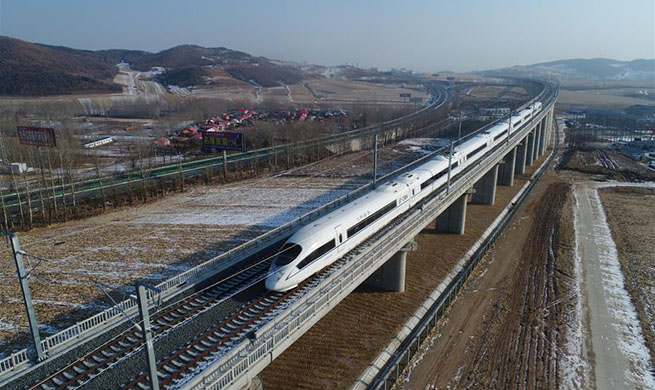BERLIN, May 23 (Xinhua) -- The long-distance train operator FlixTrain opened its third rail service between Berlin and Cologne on Thursday.
The bright green FlixTrain will serve the route between the two German cities for as little as 10 euros (11.1 U.S. dollars). Additional wagons would increase passenger capacity between Berlin and Stuttgart by 30 percent, according to the German rail operator.
The journey time between the main stations is 5 and a half hours, according to the timetable. FlixTrain announced that a second train would be running on the line from June 6.
"This is the first private long-distance train network in Germany," announced FlixTrain, the daughter company of the German long-distance bus service FlixBus.
In Germany, FlixTrain is currently Deutsche Bahn's only competitor in long-distance rail services.
Two FlixTrain routes have already been in regular operation for over a year between Berlin and Stuttgart and between Cologne and Hamburg. There is also a night train running from Hamburg to Loerrach.
By July, FlixTrain will be operating 7 long-distance trains on its German rail network. Around 750,000 passengers used FlixTrain during its first year of regular operation.
FlixTrain announced on Thursday that it had already served 1 million passengers on its long-distance routes in Germany.
In comparison, at the end of 2018, Deutsche Bahn was operating 274 long-distance high-speed ICE trains in Germany, which transported 148 million passengers.
On Thursday, FlixTrain also announced that it would be looking to launch its service outside Germany.
"We have applied for train routes in Sweden," said a FlixTrain spokesperson. The company is planning to link its train services in Sweden with its existing FlixBus network, which has been running for 4 years.
The German Minister for Transport, Andreas Scheuer, has recently announced plans to make long-distance train tickets cheaper for Germans by reducing the value-added tax (VAT) on train tickets to 7 percent from 19 percent.
According to Scheuer, this could save long-distance rail passengers in Germany up to 400 million euros per year. (1 euro = 1.11 U.S. dollars)













